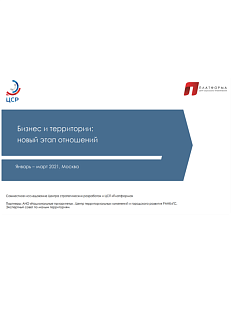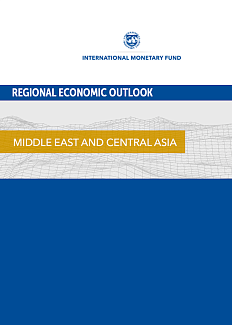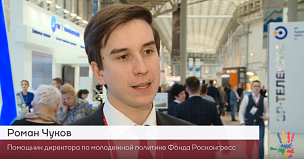“Smoke-free products are the future”

You became the President of PMI in Russia relatively not long ago — in the autumn of 2017. What tasks are you facing?
Our company is undergoing a transformation, as we want to design a smoke-free future. Further activities in Russia and around the globe will be driven by innovative products, with potential to reduce risk compared to cigarettes. In Russia, there are about 35 million smokers, and our mission is to switch those of them who would otherwise continue using nicotine-containing products, to a better alternative. One of such products is IQOS tobacco heating system, already available in 38 countries of the world, including Russia.
Previously, you were responsible for launching IQOS in Japan. Why did you choose this market to be the first for IQOS?
We chose this country because the Japanese are open to everything new, especially, when it is related to technology and innovations. In Japan, they actually care about not disturbing people around them. So for them, it is of extreme value that when using IQOS, there is no combustion in tobacco, instead it is heated to the temperature up to 350°С maximum, which is significantly below combustion temperature, and this means that there is no ash or smoke. According to our studies, IQOS also doesn’t negatively impact the indoor air quality, which is a major benefit for the people around the smoker. The new product is very popular in Japan, the share of IQOS heatsticks has already reached 15.8 % (according to PMI Financials and Tobacco Institute of Japan, Q1 2018,) and it is still going up.
When it comes to openness to innovations, are Russian people different from the Japanese or other developed nations?
Russian consumers like innovative products and follow the main global trends. Russia was one of the first markets where we launched the tobacco-heating system in 2015. We are convinced that switching smokers to IQOS may complement the government’s efforts aimed at reducing harm from smoking. Because the main cause of tobacco-related diseases are the harmful substances produced as a result of combustion. The levels of harmful substances in the aerosol generated by IQOS are on average 90–95% lower, compared with a cigarette smoke.
According to PMI’s report, by 2025, smoke-free products should account for at least 30% of your business. How is the new product doing in the Russian market?
We see great potential in innovative products, and we are committed to the idea that smoke-free products are the future, and one day they will fully replace conventional cigarettes. Today, IQOS is available in seven cities of Russia, including Saint Petersburg, and one can buy it online all over the country. Heatsticks’ market share is steadily increasing, and today in Moscow it amounts to 2.6% (according to PMI Financials, AC Nielsen, Q1 2018) of the market. Switching rates are quite high — more than 70% adult smokers who purchase IQOS, end up switching to it fully or predominantly, consequently giving up on cigarettes.
The new product is becoming increasingly popular among smokers in Russia and all around the world, and by our information, almost 5 million smokers have already switched to it, quitting smoking.
The next important step in further promotion of our innovative product in Russia will be localization of manufacturing at Philip Morris Izhora factory, where this year we will already start manufacturing IQOS heatsticks alongside conventional cigarettes.
The key topic of the Saint Petersburg Forum this year is «Building a Trust Economy». How do you understand this concept? Which principles of trust are implemented in PMI’s corporate practices?
I believe that business is an essential part of the society and must play a key role to contribute to sustainable development of the economy.
Improving transparency is one of the key factors of competitive strength. In the end of 2017, our company published a report on sustainable development in Russia. It looks into the company’s key activities in corporate social responsibility, human rights, cooperation aimed at fighting illicit tobacco products trade, environmental conservation, and local community development. We believe it is important to help the society address major issues in Russia. These issues are in line with the UN Sustainable Development Goals adopted in 2015 and target some critical problems affecting people’s well-being across the company’s geography.
As I have already mentioned, today the company is focused on the new business strategy, based on smoke-free products with potentially reduced health risks for smokers. We believe that when it comes to corporate social responsibility, the main contribution we can make is reducing the impact of smoking on public health.
For more than 30 years of operating in Russia, we have always followed a long-term strategy underpinned by our trust in the country’s economic potential. We continue investing into the modernization of the production facilities, the regional infrastructure, our employees, innovations, and charity initiatives. Our business in Russia is going strong, and our success became possible owing to an honest and efficient dialogue with government authorities of all levels.
Anlytics on the topic

The report, prepared by experts from the Center for Strategic Research (CSR) and the Center for Social Design (CSD) Platforma, examines various practices and models of relations between large companies and regions of operation, highlights the main leaders and trends in social investment.

International Monetary Fund experts present a study on the impact of the COVID-19 pandemic on the Middle East and Central Asia region. The material addresses such aspects as internal economic activity in the region, ensuring the strength of health care systems, creating and maintaining social protection systems, and others.
Credit Suisse Research Institute (CSRI) has published a comprehensive study on water scarcity and the key challenges that lie ahead, calling for definitive action to be taken on a coordinated global basis.


